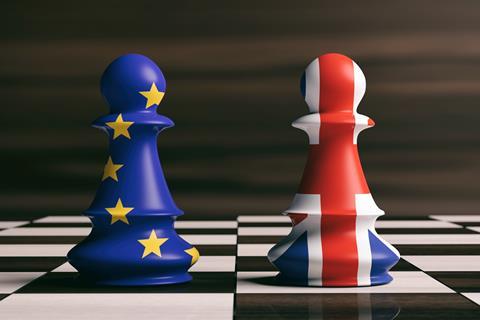I am a Brexiteer and have spent a great deal of time explaining and arguing why I believe that leaving the EU was a bold and important move.

While my underlying reasons for leaving have not changed, so much else has. The circumstances today are so far from satisfactory that given the choice, I would arrest the entire process and stop it immediately.
The intensity of the increasingly unhinged debates has started to encompass issues no one seemed to care about three years ago and yet these have become the impassioned justifications on all sides. Reasoned discussion has ended and we are drowning in failed vote after vote.
Political posturing and clandestine deals have been hatched not only in terms of how to achieve the goals of leaving, come what may, but simultaneously plotting leadership coups or manoeuvring the politics not for the good of the electorate but to engineer a general election.
We need a time out.
The UK’s proud and enviable reputation for democracy, both of the people and of parliament, is now at stake. Brexit is stretching every sinew of our faith in the system, which has for centuries been the internationally admired spine of our society.
Nothing is more likely to throw away our trust in it than stumbling into a permanent agreement, which even I as a Brexiteer have to painfully admit looks little like I was expecting.
For me to compromise my clear desire to leave, it cannot be done this way, cobbling together an agreement driven by parties with such diverse and sometimes dishonest agendas.

Those of us who voted for Brexit must understand that shocking management and self-serving decision-making on all sides of the house have frustrated the process.
Remainers are not winning and Brexiteers are not losing.
We must stop accidentally allowing Jeremy Corbyn to become PM of this country by default as the potential damage at so many levels will dwarf a no-deal Brexit.
Marxism is an attractive theory to our younger generation but for those of us who have experienced it at work in our lifetimes, we have seen the devastation it wreaks.
Finding a new solution
This is a crucial time in our history: we have to be courageous and find a new solution. We have an obligation not to confuse a desire to achieve a goal with the potential untold damage of a poor outcome, or the victory is pyrrhic indeed.
We also must accept that the will of the people has been unable to be enacted for myriad reasons.
I do not believe a referendum now is a fair solution. We simply do not know what questions to ask. My proposal is to revoke Article 50.
Without a cliff edge looming, political parties can have their battles internally and decide their own strategies. If they can’t agree, they must split and new ones replace them. The future of our relationship with the EU must form part of their manifestos at the end of this fixed-term government.
It’s a crude tool but it will at least be an honest one.
Until then, I am sure the emotional heat will dissipate allowing for more considered and informed discussion. We may find that as a result of the failed Brexit the EU rethinks strategy and makes some fundamental changes, which may affect our thoughts. That may be naïve but not impossible and we have two years to find out.

The fissures in the mainstream parties will either be repaired or breakaways will occur.
Has democracy failed? Not yet, but it’s very close. Parliamentary democracy has trumped Brexit for now. The people voted one way and parliament another and we are now contemplating entering into a deal that in terms of compromise seems to have little support at all.
No remainers should gloat and no Brexiteer should feel disadvantaged. It’s just the way it is.
Genuine courage is now required on the part of the 17 million who voted to leave, who must try to understand that the way in which we expected it to happen has been frustrated by appalling management, huge self-interest and an opposition party that has failed miserably to do anything other than manoeuvre to try to force a general election.
We have to find a new, more consensual, way to bring this about and must bring everyone with us so we can restore our faith in democracy. Once completed, we can be at least content that even if the decision is not what we wanted, the battleground was equitable and played out with integrity through a general election.
If us Brexiteers get our way in six months with a terrible, cobbled-together deal by parliamentarians with their very different and sometimes dishonest agendas, we will, I believe, regret it for a long time and in fact will have won nothing at all.
Nick Leslau is chairman of Prestbury Investments





























1 Readers' comment